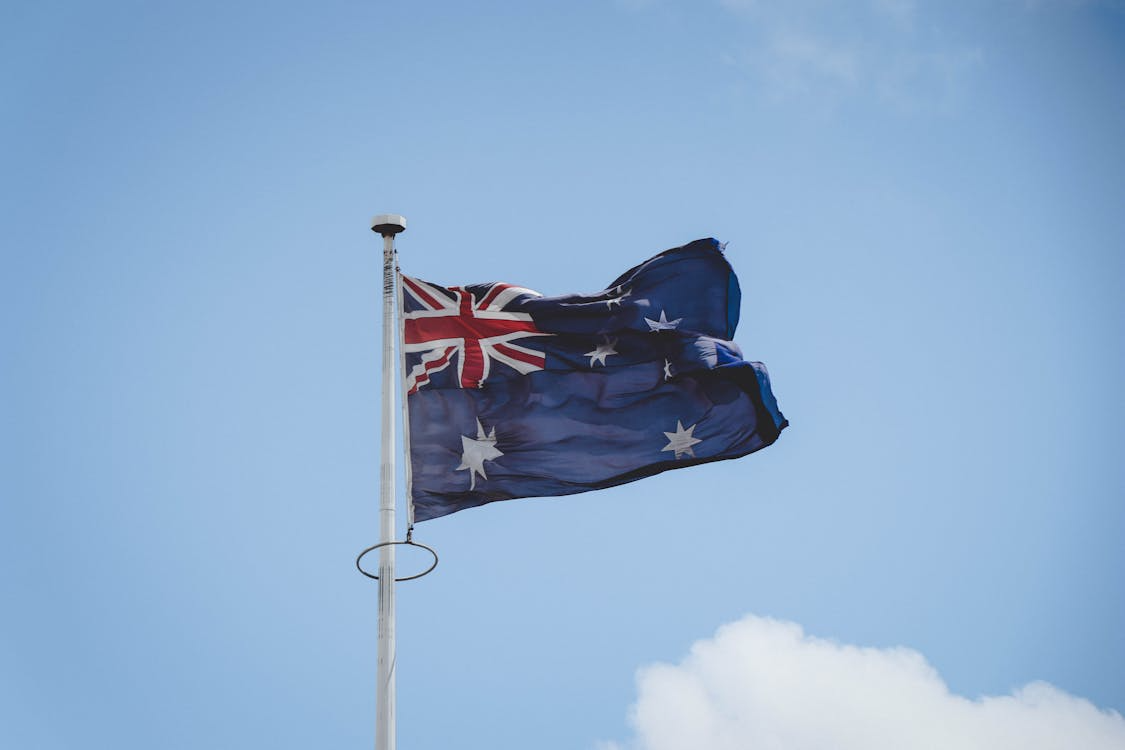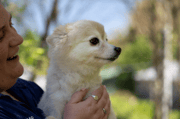
The familiar words echo through community halls, sports events and official gatherings across Australia: 'We acknowledge the Traditional Owners of the land on which we meet today.'
But what if these ceremonies also recognised another group that helped shape modern Australia?
One Brisbane businessman believes it’s time for a change—and he’s quietly leading the way.
Phil Di Bella, the coffee entrepreneur whose family migrated from Sicily over 60 years ago, has been modifying his Acknowledgement of Country statements to include migrants.
'My acknowledgment is to both; it starts with the traditional custodians then flows to the migrants who came here to make Australia what it is and what it will be,' Di Bella told the Courier Mail.
The 52-year-old adds that 'politicians are starting to copy me.'
Acknowledgement of Country recognises that you are meeting on the land of First Nations peoples and provides an opportunity for everyone there to show respect for Traditional Owners and their ongoing connection to Country.
Unlike a Welcome to Country, which should be presented by Traditional Owners, an Acknowledgement of Country can be offered by any person.
The contemporary practice began around the time of the historic Mabo decision in 1992.
In 2010, Federal Parliament decided to open each session with an Acknowledgement of the Ngunnawal Clan-Nation, making it official protocol to begin Parliament with the Lord's Prayer and an Acknowledgement of Country.
Acknowledgements can be adapted and expanded to reflect different contexts.
For example, an author might acknowledge that Aboriginal and Torres Strait Islander peoples are the land’s first storytellers, or a scientific meeting might recognise the sophistication of First Nations knowledges.
Di Bella’s perspective comes from lived experience.
As a son of migrants whose parents arrived in Australia over 60 years ago, he embodies the Australian migrant success story.
His father often joked that four people arrived on a boat with only two suitcases.
His parents 'did it tough' after arriving from Italy with two young children and little more than a suitcase.
His father worked as a groundsman at the Royal Brisbane Hospital while his mother was a seamstress at Breakfast Creek.
Di Bella became the first in his family to attend university, studying commerce at Griffith University as 'an honour' to his parents, though he 'always had a burning desire to be in control of my own destiny.'
That drive led him to create Di Bella Coffee at age 26 in 2002, which grew into one of Australia’s largest specialty coffee roasters.
He sold the business to Retail Food Group for $47 million in 2014.
He was the world’s youngest recipient of an Italian knighthood, receiving the 'Order of the Star of Italian Solidarity' for his contribution to the Italian community.
Not everyone agrees with expanding these ceremonies.
Northern Territory Aboriginal woman Cheron Long, known for her commentary on Indigenous issues, argues the ceremonies should be replaced entirely with recognition of Australian veterans.
'I've had a gutful of this fake, token Welcome to Country crap. Every damn footy game, cricket match, concert, you name it. We've got to sit through this same rehearsed nonsense like it actually means anything to the average Aussie.'
Long suggests a different approach: 'How about we honour the people who actually built and protected this country: our Anzacs, our veterans, the men and women who gave their lives so that we can enjoy a beer and watch a game and live free.'
'It's not culture, it's a box-ticking exercise pushed down our throats' - Cheron Long
The debate raises questions about what is permissible under established protocols.
Incorporating welcoming and acknowledgement protocols recognises Aboriginal and Torres Strait Islander peoples as the Traditional Owners of land and shows respect.
Protocols explicitly state that Acknowledgement of Country 'can be adapted and expanded for different contexts.'
The type of acknowledgement undertaken should be appropriate to the nature and size of the event or material.
This flexibility suggests there may be room for the adaptation Di Bella proposes, though it would require careful consideration of cultural sensitivities and consultation with local Indigenous communities.
Acknowledgement of Country is usually given at the beginning of meetings, speeches or other formal occasions by the Chair or Master of Ceremonies.
For many Australians over 60, these ceremonies have become a regular part of community life—from RSL meetings to local council gatherings, from sporting events to cultural performances.
The debate reflects broader questions about Australian identity and how various groups’ contributions are recognised.
It is particularly relevant for a generation that witnessed significant waves of post-war migration alongside gradual recognition of Indigenous rights.
The history of dispossession and colonisation lies at the heart of the disparity between Aboriginal and Torres Strait Islander peoples and other Australians today.
Including recognition of Aboriginal and Torres Strait Islander peoples in events, meetings and national symbols contributes to ending exclusion that has been so damaging.
Any changes to established protocols would need to balance respect for Indigenous culture with acknowledgement of Australia’s multicultural heritage.
The ceremonies were incorporated 'to enable the wider community to share in Aboriginal culture and heritage, facilitating better relationships between Aboriginal and Torres Strait Islander people and other Australians.'
Di Bella’s conversation highlights genuine desires within parts of the community to be more inclusive while underlining the delicate nature of cultural protocols.
As these discussions continue in community halls and political offices across the country, they remind us that questions of recognition, respect and national identity remain very much alive.
Whether Di Bella’s approach gains broader acceptance will likely depend on how well it balances acknowledgement of Indigenous primacy with recognition of Australia’s multicultural journey.
What This Means For You
Acknowledgement of Country can be given by anyone, while a Welcome to Country is exclusive to Traditional Owners. These acknowledgements are flexible and can be adapted to different contexts, allowing for recognition of both Indigenous peoples and migrants who have contributed to Australia’s story.
Phil Di Bella’s proposal to include migrants highlights the important role they have played in shaping modern Australia and has already attracted attention among some politicians. Any changes to these protocols, however, require careful consultation with Indigenous communities to ensure cultural respect is maintained.
For Australian audiences, this conversation is relevant because it encourages reflection on how we honour all groups that have helped build the nation while respecting the primacy of Traditional Owners. It invites communities to think about inclusivity, cultural recognition, and the balance between tradition and contemporary values.
The conversation around Acknowledgement of Country and inclusion of migrants has sparked a variety of opinions across the country.
If you want to see how people are reacting to these ceremonies in real-life events, there’s a story that captures the differing viewpoints.
It’s a useful follow-up to explore how public sentiment can vary and what debates are unfolding around these cultural practices.
Read more: Too much of a good thing? Aussies split on Welcome to Country ceremonies
Welcome to Country migrants: Acknowledgement of Country could include migrant contributions — Reports on Brisbane businessman Phil Di Bella proposing that Acknowledgement of Country ceremonies recognise both Traditional Owners and migrants.
https://www.dailymail.co.uk/news/article-15229345/Welcome-Country-migrants-Acknowledgement.html
Acknowledgement of Country and Welcome to Country—Reconciliation Australia — Explains the purpose of Acknowledgement of Country and Welcome to Country in showing respect for Aboriginal and Torres Strait Islander peoples.
https://www.reconciliation.org.au/reconciliation/acknowledgement-of-country-and-welcome-to-country/
Acknowledgement of Country | Indigenous — Outlines that an Acknowledgement of Country recognises the land of First Nations peoples and allows everyone present to show respect.
https://www.indigenous.gov.au/acknowledgement-country
Acknowledgement of Country | Indigenous — Clarifies that an Acknowledgement of Country can be offered by any person.
https://www.indigenous.gov.au/acknowledgement-country
Acknowledgement of Country | Department of Industry Science and Resources — States that an Acknowledgement of Country can be conducted by any person as a mark of respect.
https://www.industry.gov.au/site-notices/acknowledgement-country
Acknowledgement of Country | Department of Industry Science and Resources — Notes that a Welcome to Country should be presented by Traditional Owners.
https://www.industry.gov.au/site-notices/acknowledgement-country
Acknowledgement of Country & Welcome to Country Guidelines V3.1, March 2025 — Provides historical context, noting that contemporary Acknowledgement of Country began around the 1992 Mabo decision.
https://myportal.actheology.edu.au/FileDownload/a5cae343-22fe-49e3-8cb8-5f136a4a4cb7/acknowledgement-of-country-guidelines
Brand Jam—Brand Jam — Shares Di Bella’s personal migrant background, highlighting his parents’ arrival in Australia over 60 years ago.
https://brandjam.co/transcript/episode-19
Phillip Di Bella—Founder—Di Bella Coffee—Arete Executive — Details Di Bella’s early life and education, noting he was the first in his family to attend university.
https://areteexecutive.com.au/phillip-di-bella-founder-di-bella-coffee/
Phillip Di Bella sells to Retail Food Group for $47 million—SmartCompany — Covers the sale of Di Bella Coffee and its growth into one of Australia’s largest specialty coffee roasters.
https://www.smartcompany.com.au/growth/phillip-di-bella-sells-to-retail-food-group-for-47-million/
Phillip Di Bella-Business Speakers| Great Expectation Speakers & and Trainers — Highlights Di Bella receiving the Italian knighthood for contributions to the Italian community.
https://www.greatexpectation.com.au/presenter/business-speakers/Phillip-Di-Bella
Protocols for Welcome to Country and Acknowledgement of Country — Outlines how ceremonies are designed to enable wider community engagement and foster relationships with Aboriginal and Torres Strait Islander peoples.
https://www.clcnsw.org.au/sites/default/files/2018-08/201107%20Protocols%20for%20Welcome%20to%20Country%20and%20Acknowledgement%20of%20Country.pdf
What are your thoughts on adapting traditional ceremonies—should acknowledgements evolve to reflect Australia’s multicultural story?







